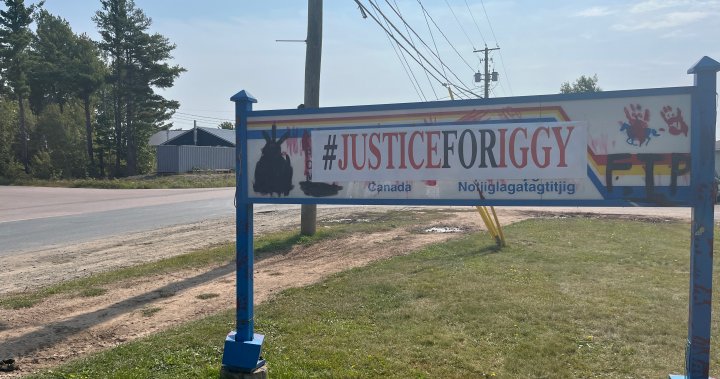The recent shooting death of an Indigenous man in New Brunswick is under scrutiny, as the RCMP is disputing claims that it happened during a police wellness check. Assistant Commissioner DeAnna Hill stated that the information is inaccurate, despite initial reports that two officers responded to a report of an armed man in mental distress at a home in the Elsipogtog First Nation. The incident escalated when one Mountie shot the man after the other failed to subdue him with a stun gun. The Serious Incident Response Team will be conducting an investigation to determine all of the facts surrounding the incident.
Erin Nauss, director of the Serious Incident Response Team, confirmed that the initial interaction on Sunday was not considered a wellness check by the RCMP, contradicting statements from an Indigenous group that works with the RCMP. This group expressed disappointment that they were not informed about the deadly incident until it was too late and described the Mounties’ initial role at the scene as a wellness check. New Brunswick Liberal Leader Susan Holt has also spoken out, describing the situation as a wellness check gone wrong. The discrepancies in accounts of the incident highlight the need for a thorough investigation to uncover the truth of what occurred.
The conflicting narratives surrounding the shooting death emphasize the importance of transparency and accountability within law enforcement agencies. The New Brunswick RCMP’s response to the incident has sparked public concern and calls for a full investigation to determine the sequence of events that led to the tragic outcome. The involvement of the Serious Incident Response Team signals a commitment to uncovering the truth and ensuring that all facts are brought to light.
The role of police in responding to mental health crises has also come into question, as the incident involving the Indigenous man in distress raises concerns about the training and protocols followed by law enforcement in such situations. The use of force by the Mounties in this case has raised red flags about the adequacy of de-escalation tactics and support for individuals experiencing mental health challenges. The need for increased awareness and sensitivity in handling mental health calls is evident, as communities seek reassurance that similar incidents can be prevented in the future.
The shooting death of the Indigenous man has reignited discussions about police reform and the need for greater collaboration between law enforcement agencies and Indigenous communities. The lack of communication between the RCMP and the Indigenous group following the incident highlights existing tensions and gaps in understanding that must be addressed. Moving forward, there is a call for improved dialogue and collaboration to prevent similar tragedies and ensure that all community members, especially those in vulnerable situations, are treated with respect and dignity.
As the investigation into the shooting death continues, the focus remains on uncovering the truth and seeking justice for the Indigenous man who lost his life. The resolution of conflicting reports and the establishment of clear facts surrounding the incident are essential steps towards accountability and building trust within the community. The tragic event serves as a reminder of the ongoing work needed to address systemic issues within law enforcement and ensure the safety and well-being of all individuals, particularly those who are most at risk in times of crisis.


